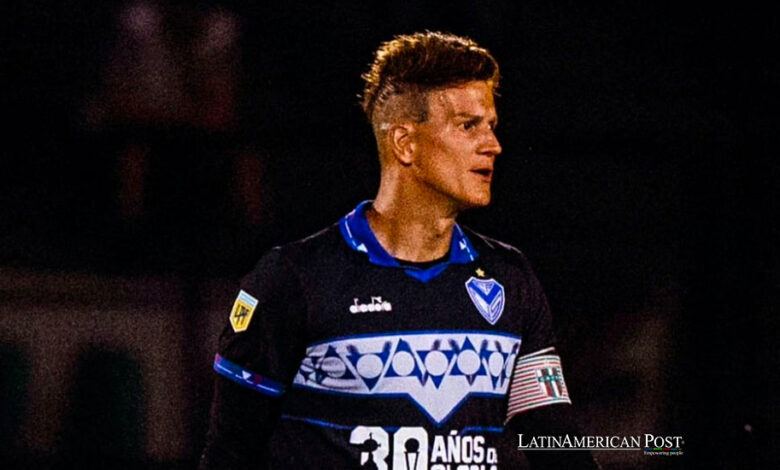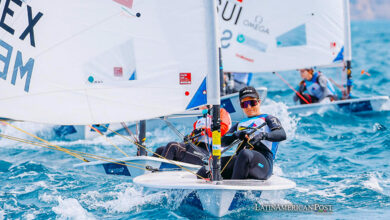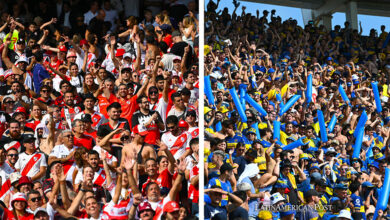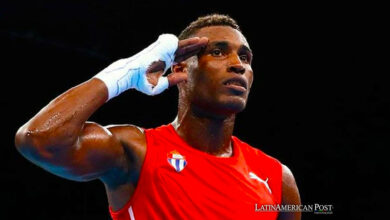Uruguayan Goalkeeper Sosa Released on Bail Amidst Abuse Charges

Uruguayan goalkeeper Sebastián Sosa was released from his contract with Argentina’s Vélez Sarsfield as he faces charges in a sexual abuse case that implicates him and three teammates, shining a spotlight on issues of conduct and justice in sports.
In a recent unsettling development in Latin American sports, Uruguayan goalkeeper Sebastián Sosa has been officially released from his contract with the Argentine club Vélez Sarsfield. This decision comes amidst ongoing investigations into allegations of sexual abuse that reportedly took place on March 3, involving Sosa and three of his teammates. The case has stirred controversies within the realm of sports and prompted a broader discussion on athlete conduct and legal accountability in Latin America.
The allegations surfaced when a woman reported that Sosa and his teammates had abused her after a social event that extended into the private quarters of a hotel in Tucumán, Argentina. According to reports, the woman met Sosa and later joined him and others at the hotel where the players stayed during a sports event. It is alleged that after consuming several alcoholic beverages, the woman felt dizzy, lay down, and was then assaulted.
Sosa, a skilled goalkeeper who has won several national titles in Uruguay, Mexico, and Argentina, was the only one of the four players involved to be granted bail, set at 50 million pesos (approximately $58,307). He must remain in Argentina and check in bi-weekly at a local police station while awaiting trial, where he will be judged as a secondary participant.
The other three players involved—defender Braian Cufré, midfielder José Florentín from Paraguay, and young striker Abiel Osorio—are under house arrest in Tucumán and facing more severe charges.
Vélez Sarsfield’s Response
In response to the charges, Vélez Sarsfield acted swiftly by suspending the contracts of the implicated players on March 18, pending further investigation. The club has also initiated an internal inquiry to address the situation and decide the players’ future.
This incident raises critical questions about the responsibilities of sports clubs in handling such severe allegations and the measures they take to ensure such behaviors are neither condoned nor repeated. The club’s statement emphasized a commitment to swift and decisive action, reflecting a growing awareness within sports organizations about their role in maintaining ethical standards.
Broader Implications in Latin American Sports
This case is not isolated within Latin American sports, where several similar incidents have previously raised concerns about the culture within professional sports and the measures in place to protect all involved parties. The discussion extends beyond individual misconduct to systemic issues within sports institutions that must effectively address and prevent such behaviors.
Across Latin America, there is an increasing call for sports teams and associations to implement stricter codes of conduct, better support systems for potential victims, and more apparent protocols for handling allegations of abuse. These steps are seen as essential not only for the protection of individuals but also for preserving the integrity of sports.
Legal and Cultural Challenges
The legal proceedings in such cases are closely watched as they test the robustness of the justice system in dealing with high-profile cases involving famous sports figures. Maintaining a balance between ensuring a fair trial and addressing public and media scrutiny is often challenging.
Moreover, these incidents bring to light the broader cultural challenges within the sports community, where power dynamics and accountability issues come into play. They underscore the need for ongoing education and dialogue about respect, consent, and the legal consequences of misconduct.
As Sebastián Sosa and his teammates await trial, the sports world and the public continue grappling with these allegations’ implications. The outcome of this case could potentially influence how similar cases are handled in the future, not just in Argentina but across the sports community in Latin America.
Also read: Argentinean Goalkeeper Nahuel Guzman Faces Sanctions for Aiming Laser Pointer at Opponents
The incident serves as a stark reminder of athletes’ responsibilities as public figures and the role of sports organizations in fostering environments where ethical behavior is the norm, not the exception. As the legal process unfolds, it will continue to provoke discussions on the need for cultural shifts within sports to ensure safety, respect, and justice for all.





